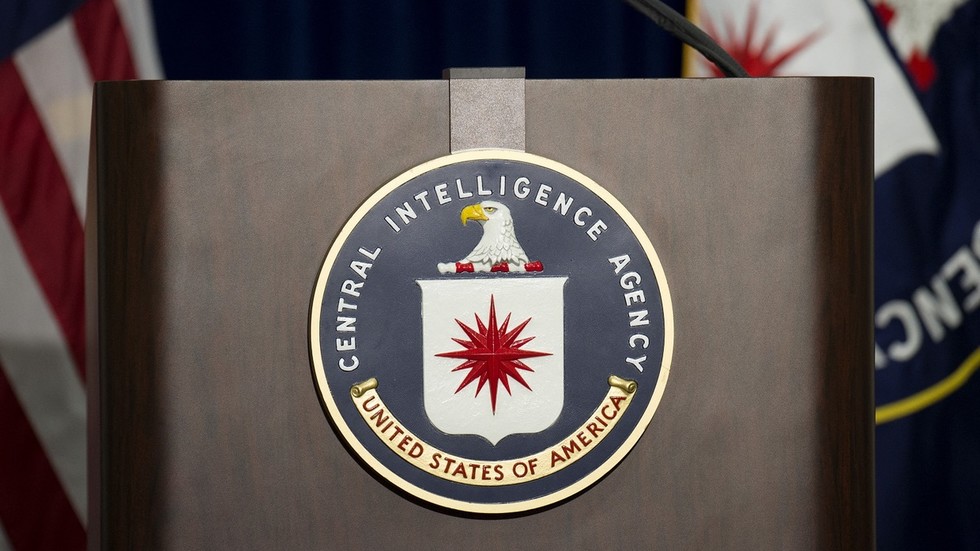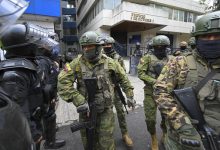
Washington’s “adversarial relationship” with Russia prevented full disclosure of what it knew, sources told the newspaper
FILE PHOTO: A lectern before a media briefing at the CIA headquarters in Langley, Virginia. © Jim WATSON / AFP
The lack of trust between the US and Russia prevented Washington from sharing all the intelligence it possessed about a looming terrorist attack in Moscow, the New York Times has claimed.
Four gunmen staged one of the bloodiest massacres in Russian history last Friday, when they went on a gun rampage at a large concert venue just outside of the capital before setting the building on fire. Over 140 people were killed in the attack.
Earlier in March, the US embassy in Moscow issued a warning to American citizens of a possible attack. Separately, a non-public message was sent to Russian security officials. Aleksandr Bortnikov, the head of Russia’s Federal Security Service (FSB), described it as “general in nature,” when he updated the public on the investigation on Tuesday.
“The adversarial relationship between Washington and Moscow prevented US officials from sharing any information about the plot beyond what was necessary,” the Times said. The Americans purportedly held back information “out of fear Russian authorities might learn their intelligence sources or methods,” it said.
Read more
In the public warning on March 7, the embassy said the threat was acute for the next 48 hours. The newspaper said it was “unclear whether US intelligence mistook the timing of the attack or the extremists delayed their plan upon seeing heightened security.”
President Vladimir Putin described the perpetrators as radical Islamists, after they were apprehended in a Russian region bordering Ukraine. They had allegedly been recruited through an online chat operated on behalf of ISIS-K, an Afghanistan-based offshoot of the once-powerful terrorist organization Islamic State (IS, formerly ISIS).
Washington has pinned the mass murder on ISIS-K, which has claimed credit for it. However, Russian officials have argued that some other party, such as Ukrainian intelligence services, may have masterminded the plot.
Some Russian news outlets have suggested that the terrorists had initially planned an earlier assault at Crocus City Hall. On March 10, the venue hosted a concert by performer Shaman, who is labeled “pro-Putin” by critics of the Russian leader due to the nationalist lyrics in some of his songs.
READ MORE:
The US has sacrificed a common anti-terror principle to stick it to Putin
One of the perpetrators was apparently photographed at the premises on March 7, according to an image published in the Russian media. Security was reportedly heightened at the concert hall in the days following the American warning.




